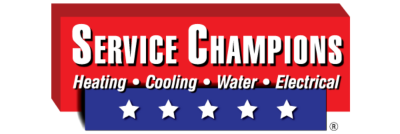What Does Heating Maintenance Entail?

December 21, 2022
At Service Champions, we often remind our customers to schedule heating maintenance before the cool weather arrives. Furnace inspections and tune-ups have a wide range of benefits. But many people aren’t exactly sure what heater maintenance entails. We’ll talk about maintenance steps you can take yourself, and also explain why you need a professional to check your furnace at least once a year.
How You Can Take Care of Your Furnace
Your annual furnace tune-up is essential. However, you should also have your own heating maintenance system in place. This routine can ensure your heater runs smoothly, efficiently, and safely; it can avoid major repairs too. To maintain your furnace:
Reduce the Workload: Sealing leaky windows and doors prevents heated air from escaping, which can cause a furnace to overwork itself. Avoiding this can prevent big repairs and extend your HVAC system’s lifespan.
Check/Replace the Filter: Air filters should be checked monthly, and replaced every three months. Your furnace will run more efficiently and you can improve indoor air quality.
Test the Thermostat: Turn up the thermostat in the spring and fall. The furnace should start up and continue running. If it turns off in a few minutes, it’s time for professional service (also check the thermostat is set correctly).
Clean the Outside Unit: Remove leaves and other debris from around the outdoor unit and fan. Clean off any snow and ice that starts to accumulate.
Don’t Block Interior Vents: Dust, dirt, pet hair, and other debris can block HVAC vents and interfere with how your furnace works. Cleaning the vents helps improve air circulation.
Steps of Professional Heating Maintenance
When you schedule a furnace maintenance appointment, technicians will arrive at your home and follow a checklist of tasks. They can accomplish quite a lot in a short amount of time. Tasks a maintenance professional will perform include:
Checking major parts for signs of wear, damage, or corrosion, including the heat exchanger.
Lubricating all moving parts to reduce friction and wear.
Inspecting and cleaning the vent system and air intake grilles.
Examining the blower and cleaning it, while removing debris if necessary.
Inspecting electrical connections and tightening or replacing them as necessary.
Testing voltage and amperage levels.
Checking the burner and flame sensor for any damage.
Testing the unit’s startup cycle and safety controls.
Inspecting belts for cracks and replacing them as needed.
Evaluating the thermostat and, if necessary, calibrating it.
Oil and gas furnaces have additional maintenance requirements. Some of these include checking for leaks in the fuel line, inspecting the thermocouple, and testing burners, the pilot system, and gas pressure. The combustion chamber is examined as well. After turning off the gas supply, the technician will inspect the chamber and clean any dust and soot found.
Oil furnaces have an oil filter that needs to be changed once a year. An inspector may also recommend replacing the oil nozzle, which can get clogged by impurities in the fuel. If the nozzle was previously installed incorrectly, the existing one will be replaced.
Schedule Heater Maintenance Today
Properly maintaining your furnace can lower energy bills, avoid major repairs and breakdowns, and keep your warranty valid. The unit may last longer as well. For professional heating maintenance services in San Jose, Sacramento, and throughout our Northern California service area, you can trust Service Champions. Our certified technicians specialize in maintaining furnaces, heat pumps, ductless mini-split systems, thermostats, ductwork, and more.
To schedule heating maintenance and a tune-up, contact us online or call 833-600-0991 today. Also, sign up for our MVP Program to receive annual tune-ups and discounts on repairs.
